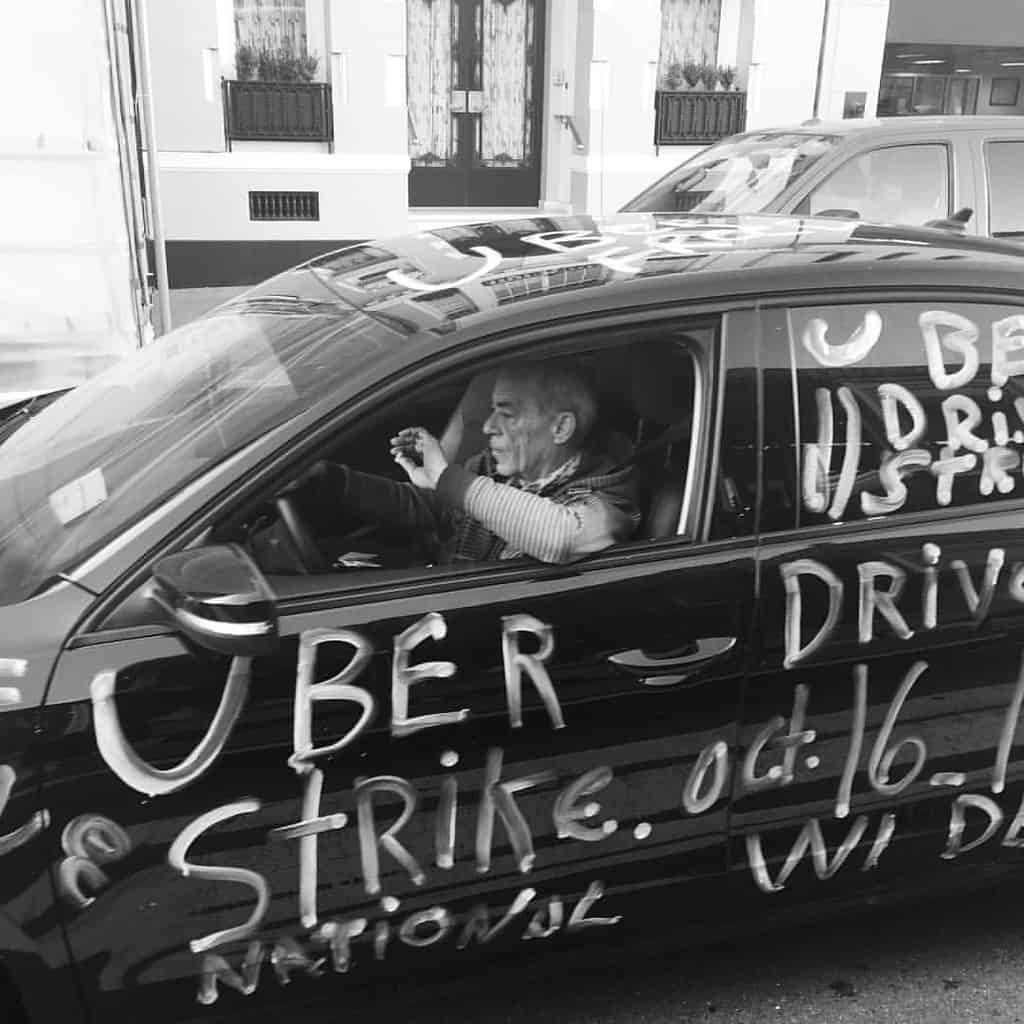
Kate Andrias is the Patricia D. and R. Paul Yetter Professor of Law at Columbia Law School.

Mike Firestone is a Fellow at the Harvard Law School Labor and Worklife Program.

Benjamin Sachs is the Kestnbaum Professor of Labor and Industry at Harvard Law School and a leading expert in the field of labor law and labor relations. He is also faculty director of the Center for Labor and a Just Economy. Professor Sachs teaches courses in labor law, employment law, and law and social change, and his writing focuses on union organizing and unions in American politics. Prior to joining the Harvard faculty in 2008, Professor Sachs was the Joseph Goldstein Fellow at Yale Law School. From 2002-2006, he served as Assistant General Counsel of the Service Employees International Union (SEIU) in Washington, D.C. Professor Sachs graduated from Yale Law School in 1998, and served as a judicial law clerk to the Honorable Stephen Reinhardt of the United States Court of Appeals for the Ninth Circuit. His writing has appeared in the Harvard Law Review, the Yale Law Journal, the Columbia Law Review, the New York Times and elsewhere. Professor Sachs received the Yale Law School teaching award in 2007 and in 2013 received the Sacks-Freund Award for Teaching Excellence at Harvard Law School. He can be reached at [email protected].
Uber and other gig companies are rushing to pass a bill in the final weeks of Albany’s legislative session that would undermine labor standards for the growing millions of app-based workers, the majority of whom are immigrants and people of color. The companies, in an attempt to harness the interest among worker advocates in “sectoral bargaining,” claim that the law creates a structure for unionization that would include all app-based ride and delivery workers. In reality, the bill offers a watered-down version of union representation, closely controlled by the companies, while stripping away essential worker rights and protections. As labor scholars and advocates who believe in genuine sectoral bargaining as a critical tool for building worker power, we are deeply opposed to the New York bill.
First, some background. For nearly a century, U.S. law has mostly restricted unions to organizing within individual companies (known as enterprise bargaining), and mostly among workers with similar jobs in particular workplaces. Although many workers have won improvements through such bargaining, this disaggregated system prevents the vast majority of workers from securing union representation and makes it impossible for all workers to band together across companies to build the power necessary to demand a more equitable economy.
The alternative to enterprise bargaining is sectoral bargaining. In a sectoral system – common in countries across Europe – workers organize into unions and bargain with companies not only at the workplace level but also across entire industries. Having strong organizations at both the workplace and sectoral levels gives workers far more power over the decisions that shape their lives (picture organizing the whole fast-food industry and not just a single McDonalds). A sectoral system has multiple advantages: 1) it’s inclusive, enhancing the power of women, workers of color, and others historically excluded from the protection of collective bargaining agreements; 2) by reaching all who work in an industry, sectoral agreements prevent employers from skirting obligations through franchising and subcontracting; and (3) because sectoral agreements on wages and working conditions apply to all the companies in a sector, they reduce the corporate incentive to fight unions at all costs.
At the heart of any genuine sectoral system are democratic unions that workers build and control themselves. The foundational problem with the New York bill is that it does not create a process through which workers can build these kinds of organizations. According to the bill, the companies get to decide which union has the ability to contact workers and ask them for their support, and the bill places severe limits on which unions can even seek such designation. Moreover, the union that the companies pick is entitled only to email workers through the company network – no “personally identifiable information” will be shared – making it functionally impossible for union organizers and workers to meet face-to-face to build a strong and democratic organization. Then, if 10% of the workforce signals via email that they support the company-selected union, that union becomes the exclusive bargaining agent for all the workers, thereby locking out other democratic unions from the process. Finally, when a 10% exclusive representative is in place, the companies will funnel money directly to the union, without even a pretense of worker support for the payments.
To put it mildly, this is not a process meant to allow workers to build real collective power by organizing a democratic and autonomous union. It’s a process designed to let the companies choose the union for the workers, and then to fund that union as an insurance policy against more genuine forms of worker organizing and voice. This is not sectoral bargaining, or any kind of bargaining at all – it’s a rigged game known as company unionism. Of course, the threat of this kind of “company union,” chosen and dominated by management, has long been recognized and prohibited under federal labor law as detrimental to workers.
Another serious concern with the bill is the extremely narrow scope of bargaining that it would enable. The bill limits core mandatory subjects of bargaining to setting minimum earnings, a procedure for workers to appeal deactivation from an app, and the size of the companies’ contribution to an ambiguous “portable benefits fund” (in what reads almost as self-parody, the law requires a “non-zero” percentage contribution). Any other topics can only be negotiated with the agreement of the industry representative. In our recommendations for labor law reform, we show why successful bargaining should include negotiations over wages, benefits, paid leave, and pay equity, and require guardrails to ensure that bargaining is robust. By excluding critical workplace issues like access to sick time, paid family leave, privacy, worker evaluation, and protection against sexual harassment – as well as other issues germane to app-workers like bathroom breaks and information about the algorithm – the law effectively blocks these issues from appearing at the negotiating table.
Related to the narrow scope of bargaining is the bill’s prohibition on “picketing, strikes, slow downs, or boycotts,” not only during the initial organizing phase but also during bargaining. Labor peace agreements can, in certain contexts, help facilitate genuine union organizing by limiting employer interference. But here, without the power to engage in any of these forms of collective action until an agreement is reached, one wonders exactly how the workers are to exert any leverage during bargaining at all.
And the problems with the New York bill go further. In exchange for offering up a company union with minimal bargaining rights and virtually no strike rights, the companies get to rewrite New York’s labor laws to codify the legal fiction that gig companies have millions of workers, but no “employees,” entitled to basic rights. The deal excludes app-based workers from protections that should cover everyone, including the right to earn minimum wage for all hours worked, take paid leave to care for a new baby, and protect against injury, sexual harassment, and racial discrimination on the job. In their place, the companies offer up a set of paltry “benefits” (i.e. the “non-zero” fund), including an accidental injury policy that wouldn’t cover a driver who falls getting out of her car (that’s in the bill too).
As a general rule, you don’t build power for working people by taking away their rights. The legal protections of employment are minimum standards that provide a baseline for all workers. These standards are most meaningful when workers join together in unions with the power to enforce those minimum standards–and to negotiate for more. But under this bill’s embrace of misclassification, negotiations for minimum earnings will commence without the floor of minimum wage for all hours worked. Meanwhile, the bill’s preemption language would eliminate the robust guaranteed earnings standard established in New York City. The bill would also toss out sixty years of progress toward workplace civil rights by eliminating employment discrimination rights for drivers, giving the companies blanket protection against claims of worker discrimination in their all-important algorithms.
New York has the chance to pass a law that creates a genuine system of sectoral bargaining for app-based workers. Such a law would keep the companies out of the process of union organizing, leaving the choice to the workers. It would allow for proportional representation at the sectoral bargaining table should different groups of workers choose to be represented by different unions. It would allow for bargaining on a far broader range of topics. It would protect workers when they engage in pickets, strikes, and other concerted activity. And it would properly classify workers as employees. The draft bill does none of these things. New York lawmakers should reject Uber’s bill.









Daily News & Commentary
Start your day with our roundup of the latest labor developments. See all
July 11
Regional director orders election without Board quorum; 9th Circuit pauses injunction on Executive Order; Driverless car legislation in Massachusetts
July 10
Wisconsin Supreme Court holds UW Health nurses are not covered by Wisconsin’s Labor Peace Act; a district judge denies the request to stay an injunction pending appeal; the NFLPA appeals an arbitration decision.
July 9
the Supreme Court allows Trump to proceed with mass firings; Secretary of Agriculture suggests Medicaid recipients replace deported migrant farmworkers; DHS ends TPS for Nicaragua and Honduras
July 8
In today’s news and commentary, Apple wins at the Fifth Circuit against the NLRB, Florida enacts a noncompete-friendly law, and complications with the No Tax on Tips in the Big Beautiful Bill. Apple won an appeal overturning a National Labor Relations Board (NLRB) decision that the company violated labor law by coercively questioning an employee […]
July 7
LA economy deals with fallout from ICE raids; a new appeal challenges the NCAA antitrust settlement; and the EPA places dissenting employees on leave.
July 6
Municipal workers in Philadelphia continue to strike; Zohran Mamdani collects union endorsements; UFCW grocery workers in California and Colorado reach tentative agreements.